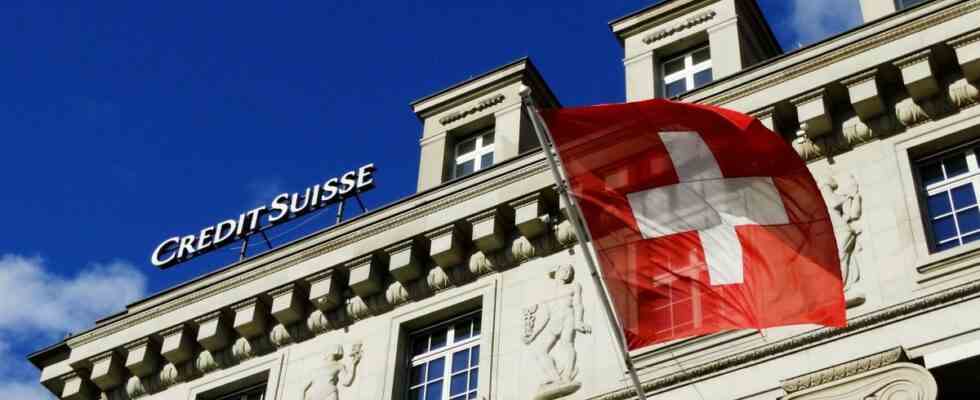It really can’t get any worse – that’s what you’ve thought a few times, looking at Credit Suisse. But the major Swiss bank keeps teaching the world better. The latest evidence for the assumption that there are huge problems at the country’s second largest institute is its conviction by the Swiss Federal Criminal Court for serious deficiencies in the fight against money laundering. The bank is now to pay a fine of two million francs, and the court is also demanding around 19 million francs because the authorities were unable to collect this money due to internal deficiencies at the bank. From a financial point of view, these are manageable sums. But it’s about history: the first conviction of a major Swiss bank for money laundering. And it’s no surprise that the convict’s name is Credit Suisse.
The incidents that are being discussed happened a long time ago. The judges in Bellinzona dealt with the story of a Bulgarian drug trafficking gang who, according to investigations, were able to launder their money at Credit Suisse between 2004 and 2007. In its verdict, the court even had to ignore the period before July 2007, since these acts are statute-barred – the investigations by the federal prosecutor’s office had taken too long, and there was no glorification for the judiciary either.
Of course, the bank does not forget to mention this: “The investigations go back more than 14 years”, she announced after the verdict. Over the years, however, she has steadily strengthened her “defense measures” to combat money laundering. We therefore take note of the decision of the Federal Criminal Court to impose a fine on the bank “due to certain historical organizational deficiencies”. But accept the verdict? no way. Credit Suisse plans to appeal.
The reasoning sounds familiar to bank observers. It’s all in the distant past, there were hardly any rules back then, everything is completely different now: Credit Suisse has been justifying its many missteps in one way or another for years. Last, as the Southgerman newspaper together with a research collective unveiled the “Suisse Secrets” – a data leak that showed that the bank had no problems with brutal rulers, corrupt politicians, war criminals and other criminals as customers for decades. Here, too, Credit Suisse said that the facts were “predominantly historical”. And “events that are historical” could “not be associated with the current management of the company”.
That is by no means convincing. Because there have always been allegations and criticism of Credit Suisse for money laundering – even after the period now assessed by the court. For example, in the corruption affair surrounding the loans granted to state-owned companies in Mozambique in 2013: the Swiss financial market supervisory authority Finma reprimanded the bank in this matter due to inadequate risk management and serious violations of the money laundering reporting obligation. Finma also issued complaints in 2018 in connection with possible cases of corruption involving the football association Fifa, the Brazilian oil company Petrobras and the Venezuelan oil company PDVSA: In these cases, too, the bank violated money laundering regulations, the incidents occurred between 2006 and 2016.
It doesn’t look like Gottstein is the right person to head this bank
Even in the recent past, the bad news has not stopped. Whether the informer affair in 2019, the bankruptcy of the finance company Greensill Capital or the collapse of the hedge fund Archegos, both in the spring of 2021: there are enough cases to suggest that Credit Suisse’s risk management is still not working, that there are serious organizational shortcomings . And that there is a questionable culture in the bank. CEO Thomas Gottstein has called for a cultural change and hired new people for risk management and compliance. But the announcement that an appeal will be lodged against the Bellinzona verdict shows that the overdue break with the past is not recognizable. It doesn’t look like Gottstein is the right person to head this bank.

